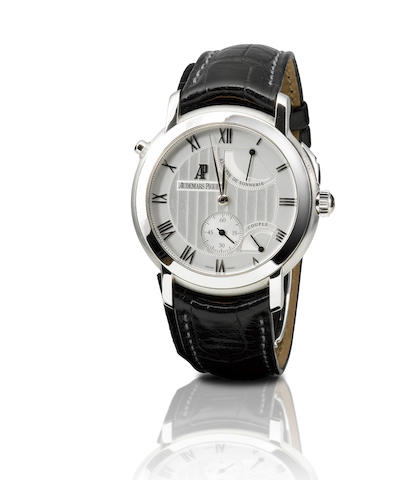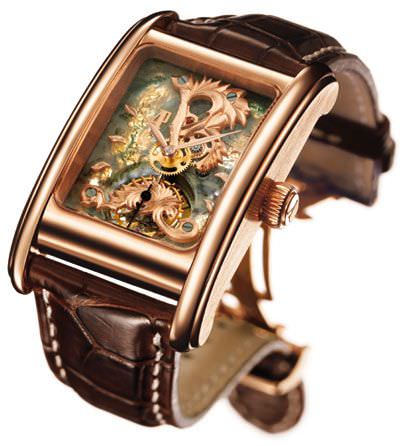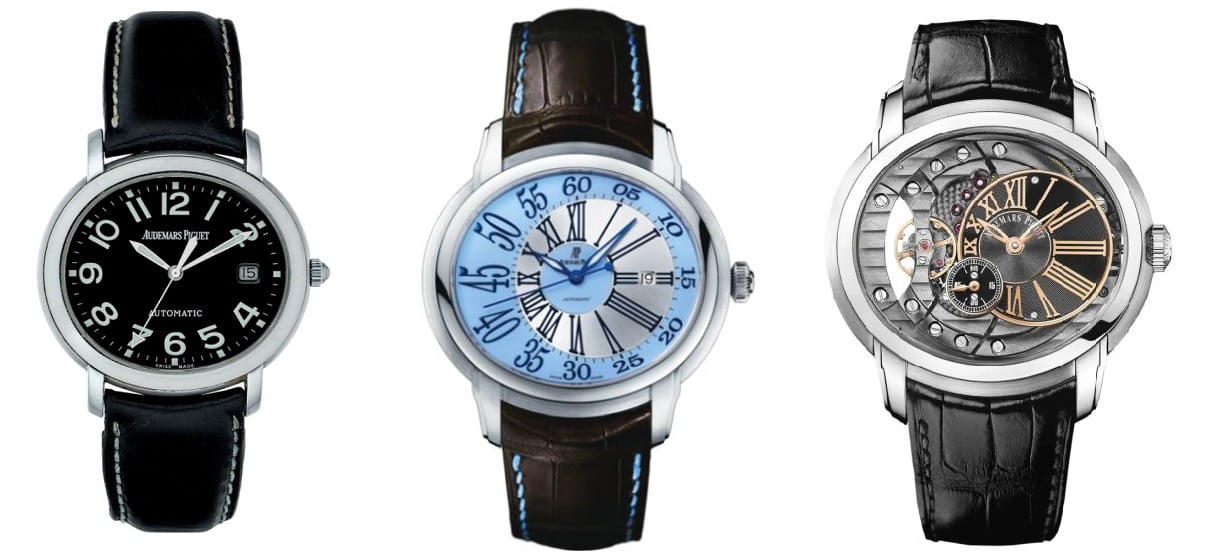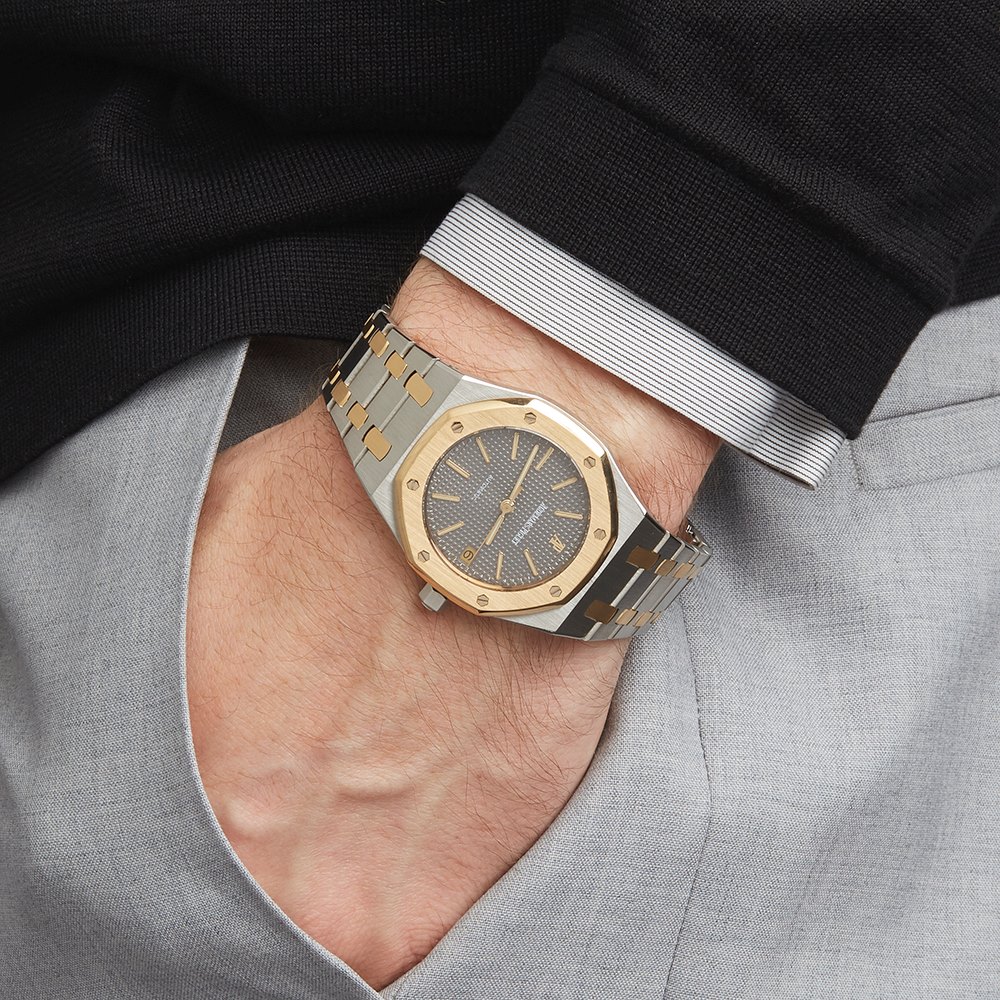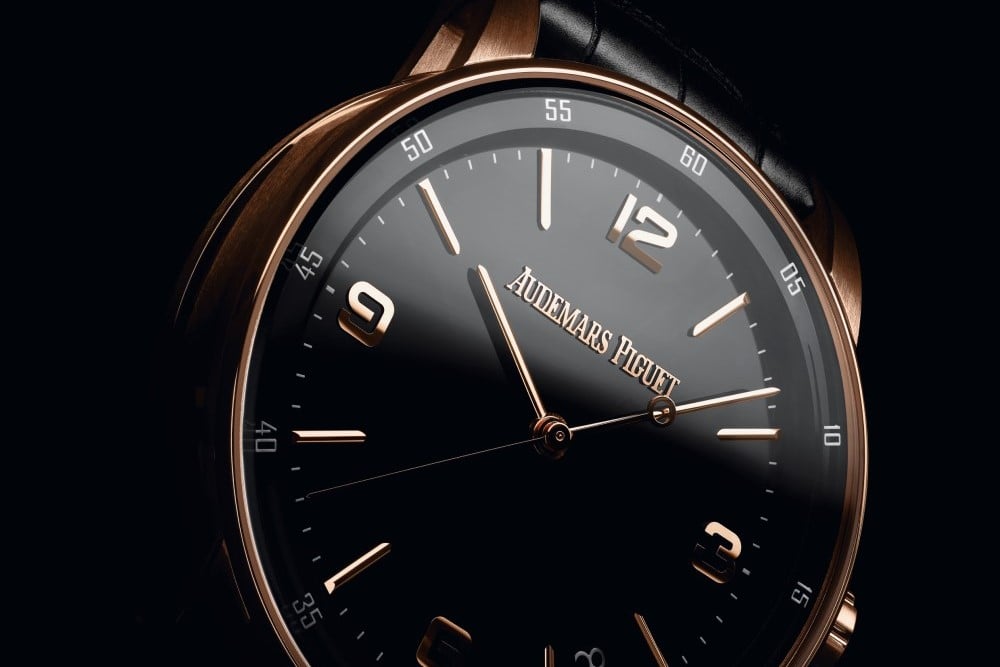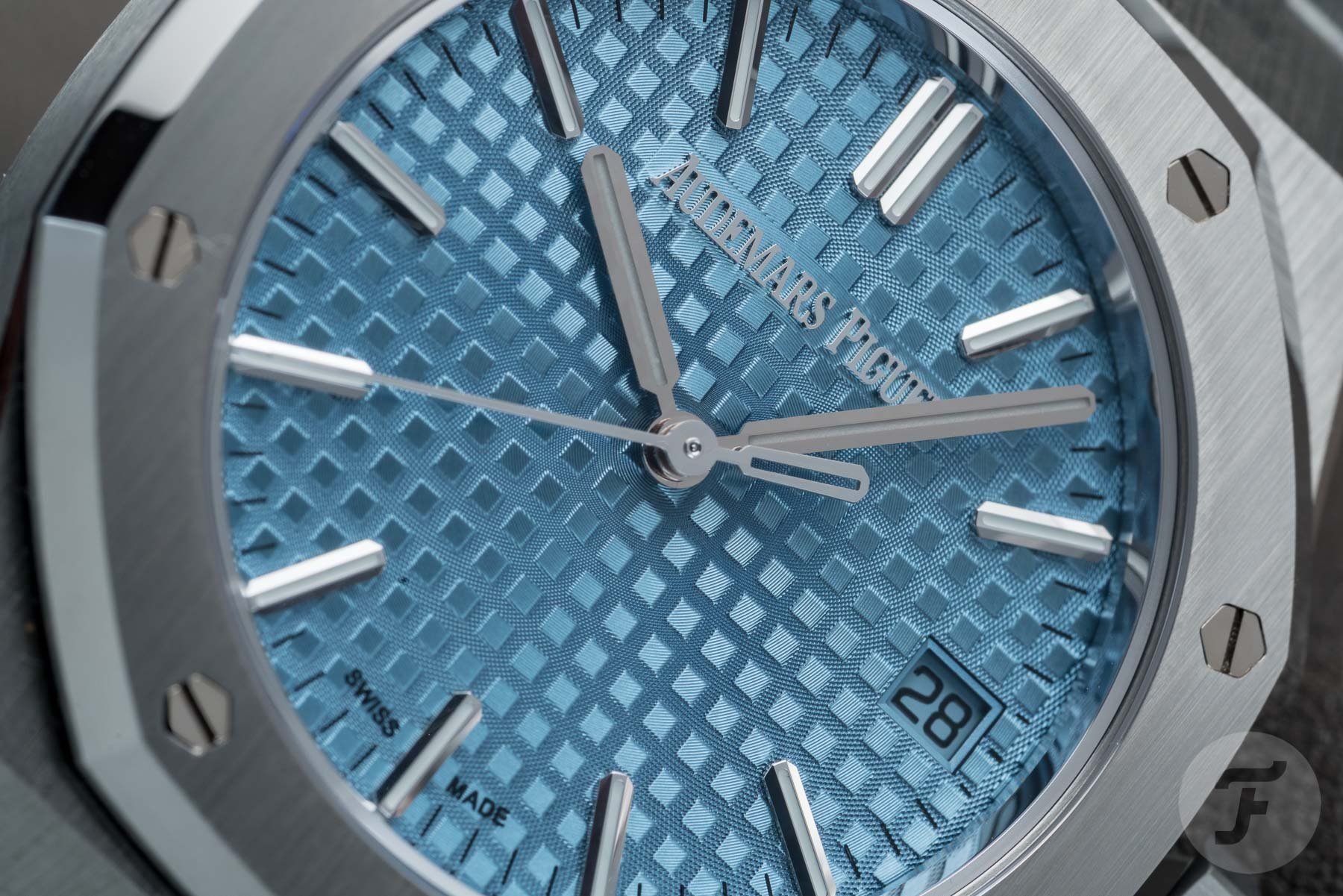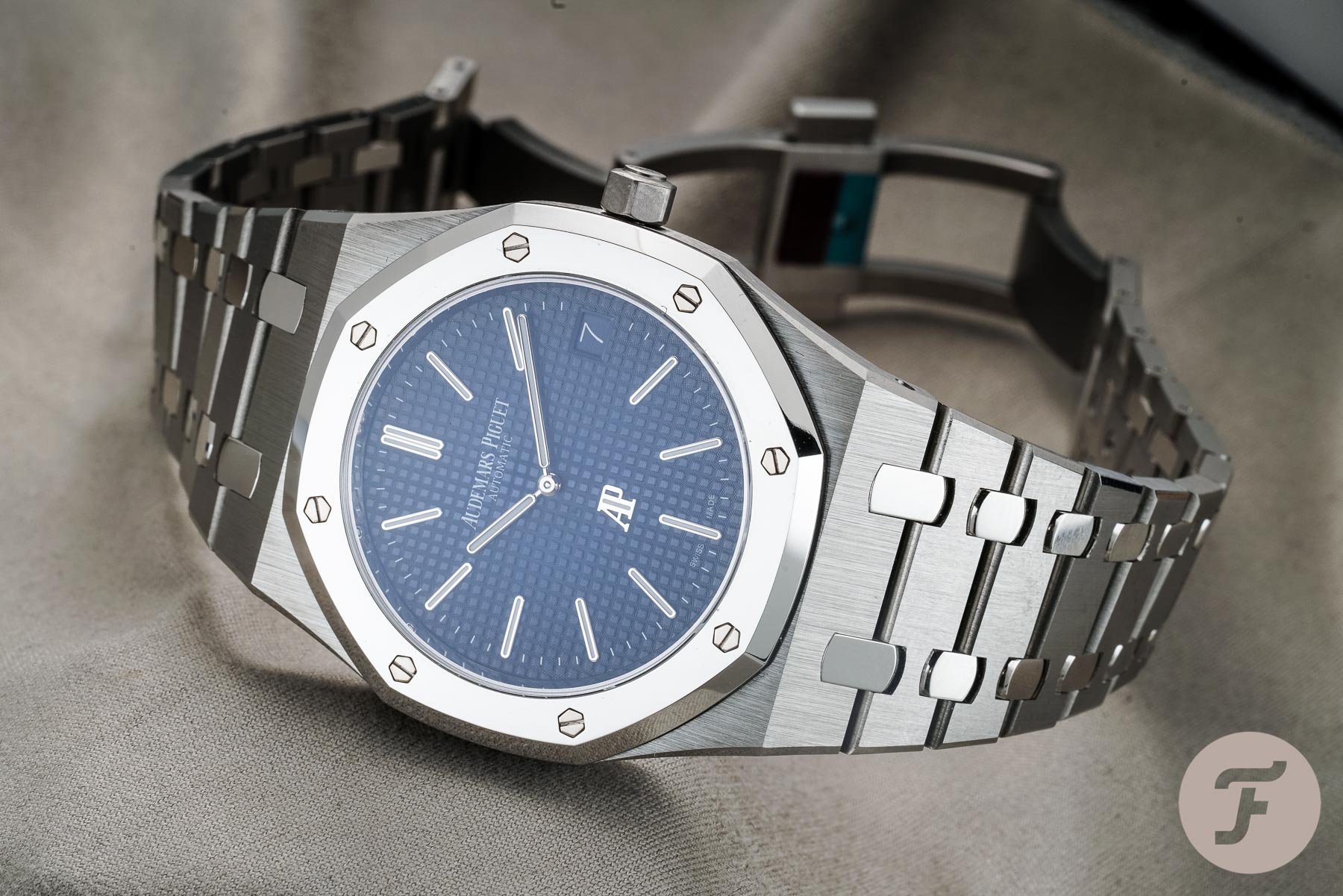Breaking Down The Brand: Audemars Piguet — In The Shadow Of The Royal Oak
It wouldn’t do Audemars Piguet justice to call it a one-trick pony. Still, it’s tough not to. The dominance of the Royal Oak is undeniable. And there certainly is strength in numbers as well. With 122 “RO” references in the current catalog compared to 75 Code 11.59, Royal Oak Offshore, and Royal Oak Concept models combined, the Royal Oak is, without a shadow of a doubt, the backbone of the brand from Le Brassus. But is it also the heart and soul? In this installment of Breaking Down The Brand, I’ll try to find out if “life” is possible for Audemars Piguet in the shadow of the Royal Oak.
Currently, there are four collections in the AP catalog — Royal Oak (122 references), Royal Oak Offshore (34 references), Royal Oak Concept (9 references), and Code 11.59 (32 references). The complete catalog consists of 197 references. You could even state there are just two main collections with one, the Royal Oak, having two sub-collections. Yes, the “ROO” and “ROC” differ from the RO, but the origin of the two wilder, sportier, more futuristic collections are clear evolutionary creations that can’t deny their RO heritage. Today, Audemars Piguet has 165 watches in its catalog that are indebted to the original Gérald Genta design that shocked the watch world back in 1972. Only the Code 11.59, which debuted in 2019 with a lot of fuzz, is a round alternative in an otherwise octagonal realm.
A seed is planted
It was 1970 when the “seed” for the Royal Oak was planted. That year, Mr. Georges Golay, the managing director of Audemars Piguet, rang up Gérald Genta. He told him that he needed “… a steel sports watch that has never been done before.” It also had to be “… something totally new and waterproof.” And in true managing-director fashion, Golay needed the design the next day. Genta delivered. He designed a “waterproof” watch inspired by a vintage diving helmet overnight. The octagonal bezel with eight screws and a visible joint on the case’s exterior was a daring stroke of genius.
Golay gave the green light, and two years later, the Royal Oak was presented to the public. The Royal Oak was the first timepiece of its kind. It was the first steel watch that was treated as if it were a precious-metal creation. Indeed, with the Royal Oak, the “luxury sports watch” was born. Genta created an icon… but also some kind of monster.
- Jules Audemars Dynamograph ref. 25945PT.OO.D022CR.01 — Image courtesy of Bonhams
- Edward Piguet Moss Agate Tourbillon movement
- Edward Piguet Moss Agate Tourbillon
The Royal Oak is a monster
The Royal Oak design was born in 1970, but Audemars Piguet is nearly a century older. The brand’s watchmaking traditions go back to 1875 when Jules-Louis Audemars and Edward-Auguste Piguet combined their talents to create timepieces featuring rare complications. The now-discontinued round Jules Audemars collection and rectangular Edward Piguet watches paid tribute to the company’s founders. For instance, when AP turned 125 in 2000, the brand introduced the Jules Audemars Dynamograph, a timepiece that indicated the torque supplied by the mainspring. The watch with caliber 2891 inside was added to the prestigious Audemars Piguet Classic Collection.
And in 2005, the Edward Piguet Moss Agate Tourbillon — a watch with a base plate in moss agate — became a world premiere as AP managed to find a way to drill fine stones. Do you remember or have you heard of these watches? The chances are you haven’t because the Royal Oak is a monster that devours everything from watch collections to recollections of watches.
It’s oval time!
The Millenary collection debuted in 1995. Key elements of the collection were an elliptical case shape, an eccentric dial, and a three-dimensional perspective on the movement. In 2006, the brand wanted to show that it was more than Royal Oaks and Royal Oak Offshores because, by that time, the large and exuberant ROO was the must-have watch. I remember former CEO Georges-Henri Meylan on the stage at a theater in Geneva saying, “It’s oval time!” — I also remember the rocking performance by French/Indonesian singer Anggun that followed, but that’s not very relevant to the story. Oval time didn’t make the impact it was supposed to. Mainly, it was because many of the Millenary watches released from 2006 onward were high-end, complicated creations with a heavy price tag.
So five years later, the brand tried again with the steel Millenary 4101. And although the watch was definitely more about its oval and three-dimensional aesthetics than its complicated caliber, the 47mm watch was never able to step out of the shadow of the Royal Oak.
Another attempt to step out of the shadow of the Royal Oak
Georges-Henri Meylan, a man from an important family with deep roots in the Vallée de Joux, retired in 2009 and was succeeded as CEO by Philippe C. Merk, formerly of Maurice Lacroix. Once, when I asked Merk what luxury meant to him during an interview at AP HQ, he responded firmly and confidently, “A good sh*t in the morning!” But that answer was not the reason why Merk left AP in 2012. The official statement from the brand was that “due to differences in views on the company’s strategy, the board of directors and CEO Philippe Merk decided to stop working.” François-Henry Bennahmias, who had joined AP in 199 and worked as the president of the North American division of the company, was appointed as temporary manager and eventually became the CEO, a position he holds to this day.
It was under the leadership of the exuberant and outspoken Bennahmias that the next attempt at a watch that could exist in balance with the Royal Oak was launched. The “Code 11.59 by Audemars Piguet” — the official name that suggests that it’s an extension line, like Marciano by Guess or See by Chloé — was launched on the eve of the 2019 Salon International de la Haute Horlogerie (SIHH), and a storm broke loose.
Emotions run high
The Code 11.59 by Audemars Piguet provoked biting reactions. Most of the comments focused on the overly simple dial design that evoked associations with fashion watches from Daniel Wellington and Armani. And to reinforce their words, some critics even produced visual comparisons. Bennahmias saying in an interview that cell phone screens partially inspired the look of the watch also didn’t help. But it was not just the watch that made people lash out. The 2019 edition of the SIHH was AP’s farewell edition. The brand no longer felt at home in the salon and decided it wanted to go its own way. As a result, the brand and its CEO were blamed for being arrogant and loudmouthed by many watch professionals in many different disciplines.
The Code 11.59 has been around for three years now, and still, nobody talks about the complicated case construction with its open-worked lugs attached to the bezel. Nobody talks about the curved crystal. Even the octagonal middle case was rarely the subject of debate. Why, exactly, the Code 11.59 needed a visual reference to the Royal Oak, the watch that it was intended to steal some sunlight from, still baffles me.
The price is always right
Let’s put some numbers — or better still, prices — on the Code 11.59 to measure its success. The 41mm pink gold Code 11.59 Selfwinding (ref. 15210OR.OO.A099CR.01) has a price of €34,200. On Chrono24, that watch can be bought for €28,000. A comparable 41mm Royal Oak Selfwinding (ref. 15500OR.OO.D002CR.01) in pink gold on a leather strap has a list price of €42,000. The average price of the 41mm RO in pink gold on Chrono24 is €60,000. The price is always right: the RO is unrivaled. Not that AP has anything to complain about when talking numbers. In 2021, AP’s revenues were about 1.6 billion francs. But it has to be said that the Royal Oak is responsible for more than 90% of the turnover. And the RO’s share in the profit is even greater.
Visible success
The success of the brand is even visible in Le Brassus. There’s the new Musée Atelier Audemars Piguet and the recently opened Hôtel des Horlogers. And there are plans to demolish a part of the current headquarters. A nondescript building is making way for something that matches the modernist Bjarke Ingels Group’s style of the museum and the hotel. Still, François-Henry Bennahmias, who had been the subject of many rumors regarding him leaving or being forced to leave AP, is officially relinquishing his 11-year position as CEO at the end of next year. Under his reign, AP released a Marvel watch in the form of the bewildering Royal Oak Concept “Black Panther”. The launch of that watch was done by comedian/actor Kevin Hart and Bennahmias together. And that online spectacle proved to be the most memorable watch presentation of all time… for better or worse.
The energetic and unrestrained doings of Bennahmias not only led to cringe-worthy moments but also led to success. Over the last decade, AP doubled its turnover and operating margin. At the same time, the brand became more exclusive. Under Bennahmias, the number of dealers went from 470 to 120 by 2021. And the points of sale are still decreasing now that the brand has started opening AP Houses in important cities. By 2026, there will be just 80 points of sale left worldwide, with half of them owned by the brand. Even so, Audemars Piguet is now looking for a new leader. At least Bennahmias will be present until the end of 2023 to ensure a painless transition.
More changes
It’s not just Bennahmias who is saying goodbye to AP after a long period of rumors. After 30 years, Jasmine Audemars, the “godmother” of the privately-owned brand, will step down from her role as chairwoman of the board at the end of this year. Unlike the still-to-be-determined next CEO, the new chairman of the board has already been selected. It’s Alessandro Bogliolo, CEO of Tiffany & Co. until 2021, who will take over Jasmine Audemars’s seat at the table. What this means for the future of the brand is hard to predict. You could state that the company will be fine as long as the Royal Oak is still in demand. But what if moods and tastes change? The future CEO will have to accomplish what his three predecessors didn’t manage. The new leader has the challenge of creating an alternative or a counterweight to the dominant Royal Oak collection.
Audemars Piguet is the Royal Oak
As it stands now, Audemars Piguet is the Royal Oak. The fact that the watch celebrated its 50th anniversary this year made that only more evident. AP had no choice but to make its already-holy icon the center of attention, though it certainly didn’t need that. The demand for the Royal Oak remains much greater than the supply, and the situation shows no signs of changing. But no matter how successful and profitable the Royal Oak is, it’s also guilty of eliminating the traditional Haute Horlogerie aura of Audemars Piguet. The brand is part of the traditional Holy Trinity of watchmaking that also includes Vacheron Constantin and Patek Philippe. The Royal Oak is the urban warrior in a designer tracksuit. It is the outgoing kid that completely overshadows the bespoke-suit-and-cufflinks complications that are the foundation of Audemars Piguet.
But whereas Thierry Stern is very clear and outspoken about the Nautilus, saying that he doesn’t want the luxurious sports watch to overpower the brand’s image or complicated creations, AP shows no commercial signs of caring about its traditional past.
In the soil and in the blood
While Patek Philippe continues to renew its classic and complicated creations, AP puts its complications in an octagonal watch 99% of the time. It’s a choice supported by commercial success, and it is completely understandable from a financial point of view. But since AP also keeps banging on about the values of the company that was founded and remains firmly rooted in the cradle of Swiss watchmaking, the Vallée de Joux, the brand also sees itself as more than just a numbers-driven entity. AP wants everybody to know that it is a part of the region. The famous, historical region where the tradition of fine watchmaking is in the soil and also in the blood of the people who work and live there. The Jules Audemars and Edward Piguet collections were once the embodiment of that, and they could be once more.
Life in the shadow of the Royal Oak
Do the buyers of the Royal Oak care about the Swiss cradle of watchmaking high up in the Jura? Well, I doubt it. Nevertheless, when it comes to long-term, meaningful interactions between companies and consumers, people do value and care about the brand. They also care about the brand’s philosophy behind its products. Having a diversified product portfolio also helps. For instance, more product families reduce the impact of market volatility and help improve long-term portfolio performance. Having the Jules Audemars and Edward Piguet collections reinstated would create a more well-rounded AP world. These historical collections would complete the portfolio that now consists of the contemporary Code 11.59, the ultra-sporty Royal Oak Offshore, the avant-garde Royal Oak Concept, and the iconic Royal Oak.
Yes, life is easy in the shadow of the mighty Royal Oak. But if the brand continues to lean so heavily on the octagonal Genta original, changing the company name to Audemars Piguet by Royal Oak might be in order.
Find and follow me at Lex Stolk • Instagram.


